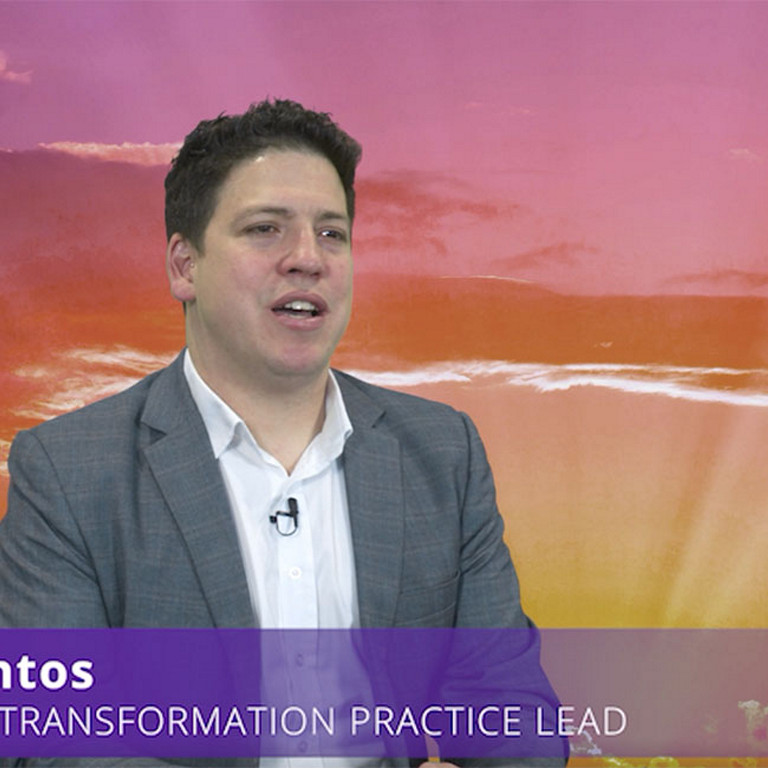The digital economy is accelerating changes to entire economies and society. In this environment, organisations need to do more than understand the impact of technology alone. To succeed organisations must also understand the entire human experience, including people’s relationship with technology. This means being conscious of and responding to factors such as individual, group and organisational behavior, decision making, knowledge and context, and how these drive experience.
Defining human experience
Human experience research focuses on the complete physical and digital experience people have with a corporate brand or service. This encompasses the collective experiences people feel when dealing with any organisation as a customer, employee, patient or citizen.
Humans are inherently social and hardwired to connect, craving transparency and a sense of community. Putting human experience at the centre of the enterprise is a great advance in how organisations approach their workplace or customer engagement strategies. Experience is complex, involving sociology, psychology, organisational behavior and architecture, as well as the intersection of workstyle and lifestyle. The best experiences enable people to consistently contribute to the organisation and society in a positive and meaningful way.
Human experience is driven by emotion, including when focused on the particular needs or relationships people have with brands or services. All the fragmented parts of a customer or employee journey together create a unique human experience.
Emotional reaction dominates most decision-making processes. Therefore, understanding the human experience and the emotions driving experience allows organisations to better relate to their customers, and therefore create better brand connection as they market their products and services. The underpinning principles of human experience are purpose (meaningful connection with people), empathy (the ability to connect with people on an emotional level), authenticity (knowing how to deal with vulnerabilities) and reciprocity (interaction with people on an equal level).
Technology enables individuals and organisations to deal with the frantic rhythm of life, providing practicality and flexibility. But technology also robotises individuals — and yet that same technology is critical to running the business. Organisations, to varying degrees of success, have used branding to “humanise” the technology and create better connection and ultimately a better human experience.
Therefore, understanding and improving our expertise around the human experience is a critical advantage in a highly competitive, and often unpredictable, global economy. This is particularly true in the case of improving customer satisfaction. The early days of the “experience marketplace” focused almost entirely on the buying customer, and to a lesser extent on the patient or citizen. Lessons from this period need to be used to create better experiences that improve satisfaction for customers, employees and business partners.
Understanding and improving our expertise around the human experience is a critical advantage in a highly competitive, and often unpredictable, global economy.
Experience builds expertise
Organisations that understand human experience will be in a good position to ensure they have access to the right expertise. Experience builds expertise. In the Accelerated Now, experience and expertise will increase in value to organisations as teams move from being managed to being enabled. An enabled team is likely to be more innovative and deliver better results.
Expertise is a process, usually driven by interactions with different practitioner characteristics within groups and organisations. This can lead to optimal performance developing over time. Therefore, organisations have to be aware that in order for expertise to develop, experience has to exist; the two are interlinked. Expertise is acquired by a team through experience and the practice of getting things done.
The dynamic, complex and interdependent nature of the business environment means that people require a breadth of expertise, ranging from distinct business disciplines such as finance, human resources, sales and R&D to the technologies that increasingly power these domains. As society rapidly transitions to increasing levels of automation, the experience and expertise of the workforce also require continual and rapid transition.
As society rapidly transitions to increasing levels of automation, the experience and expertise of the workforce also require continual and rapid transition.
Managing expertise as an asset
Expertise is a form of human capital and potentially an organisation’s most valuable, albeit intangible, asset. Most businesses undervalue experience and expertise because there has been a longstanding deficit in research into their value. Critically, there has not been a clear way of articulating, assessing and managing experience and expertise. Today, newer technologies are providing the potential for significant research breakthroughs.
Organisations need to be nurturing people and ensuring technology is more submissive to their needs. Technology alone will not facilitate the changes required to drive business agility and growth in the future environment, no matter how spectacular the technology is. This is particularly true as we move to an increasingly digitised economy, where all roles require a complex mix of business domain knowledge and technology knowledge.
Educating, managing and enabling the growth of people in increasingly interdependent, complex roles is radically different than training people as we have in the past, when roles were less complex and not subjected to the same breadth and extent of influencing factors. This shift has direct implications for workplace strategy, the business operating model (including all major operating model components), business process outsourcing (BPO), business process as a service (BPaaS) and organisational integration and disintegration, including mergers and acquisitions and internal restructuring.
As a result, organisations need to begin recognising expertise as a process, and elevating the human experience as a sub-process of expertise. Both are driven by the interaction of different practitioner characteristics within groups and organisations, resulting in optimal performance at a particular time (if you’re good at those interactions).
Organisations need to begin recognising expertise as a process, and elevating the human experience as a sub-process of expertise.
Leveraging experience and expertise is fundamental to business success. Nurturing experience and expertise proactively is key to unlocking the potential of each business domain. Yet no framework is in place to articulate, assess or leverage expertise throughout a business.
Skills and competencies alone do not constitute experience or expertise. The conventional and inaccurate concept of expertise is often bound up in vague subcategories like talent, skill, specialisation, credentials, experience, excellence, competence, capability, intellect and industriousness. Other personal characteristics take on the banner of elevated expertise: professionalism, age, gender, authoritativeness, technology prowess, elitism and even sheer hubris. None of these constitute expertise; they merely allude to it.
Expertise is an ecosystem comprised of multiple dynamic and interrelated components, one of which is experience. A comprehensive and holistic view of expertise, incorporating human experience, is required. This holistic view is made up of distinct, manageable elements shown in Figure 1. Working together, these elements can increase expertise such that it can be managed as an asset for a whole organisation, and it can be managed as an asset for customers (be they buyers, providers, patients or citizens).
Figure 1. Expertise, the human asset: The key constructs of expertise operate at both the individual and organisational level
Focusing on how things get done
As the ripple effects of the pandemic continue to evolve workplace practices, new organisational structures, roles and responsibilities will be introduced. Consequently, a new genre of professionals will emerge to support the evolution of how things get done. However, businesses are still primarily focused on other aspects of organisational development, like data architectures and process flows.
If businesses do not address expertise as an executive-level concern, they will continue to miss the opportunity to develop one of the major value drivers in their organisations. Improving technology without having effective people to work with it is akin to having world-class musical instruments that no one knows how to play.
Improving technology without having effective people to work with it is akin to having world-class musical instruments that no one knows how to play.
Nine actions for success
Organisations must develop a thorough and complete understanding of what expertise is, and how it relates to organisational goals. Here are nine proposed actions for success:
1. Reconsider people as humans, not headcount. Embrace an organic view of people as holistic, dynamic, complex entities. Experiences are lived, comprised of fluid actions and reactions as an ever-evolving process affecting each person, group of people and organisation. Recognising this complexity is key to unlocking the potential of individual experience and expertise as contributions to the enterprise. Modelling and simulating experience can enable something as pragmatic as proactive talent management and forecasting.
2. Define your expertise. Identify what expertise is and is not. Forecast the business outcomes that future experts will need to deliver. Think through key components of expertise as relevant to your business — what they are, what they mean, how they manifest and how they are projected to change or develop. Key constructs include behavior, context, decision making, experience, knowledge, knowledge flows and living system. All of these require consideration and definition and can be modelled and simulated.
3. Think capital, with expertise managed as an asset. Experience and expertise exist at multiple levels, from organisational level to business units, teams and individuals. The collective experience and expertise of an organisation should be harnessed as a strategic asset, with the same varying levels of potential impact. Valuing experience and expertise in an objective manner brings credibility to the value that individual members of the workforce bring to the organisation overall, driving business focus on the workforce as an asset and enabling integration into financial valuation.
The collective experience and expertise of an organisation should be harnessed as a strategic asset.
4. Define talent flows in terms of future business needs. Discover, capture and monitor the primary talent flows. Understand what they are across the business, considering the elements of expertise, experiences with associated gains or losses, and how these weave through customer interactions and impressions. Consider the flows through and across the operating model.
5. Rethink how expertise develops. Expertise evolves in an ecosystem of interrelated processes; it is built up by a dynamic network of constructs, the most underutilised of which is individual and shared experience. Actual organisational learning is achieved through reinvestment of what’s derived from experience and expertise, progressive problem solving and momentum via motivation. Expertise is not static, nor are any of its constituent components — especially experience. To respond to complex conditions in which they operate, organisations need to develop a unifying conceptual understanding of expertise as it specifically applies to individual — and collective — performance as a basic requirement for managing human capital.
6. Handle expertise strategically. Someone needs to own and be accountable for evaluating and growing expertise as an asset within the organisation. Partners also contribute, so understand specifically the expertise they offer, and validate it through experiences. Expand your view of expertise management with an experience strategy, and embed this in the strategy and portfolio area of the operating model. Use data to understand and elicit insights to improve the culture. Protect the people (expand privacy, risk management, compliance, security and governance).
Expand your view of expertise management with an experience strategy, and embed this in the strategy and portfolio area of the operating model.
7. Lead with accountability. Own and drive experience and expertise from the top, cascading strategy and accountability throughout the organisation. Establish clarity on the value of experience and expertise, and who is accountable to nurture and grow these assets, and deal with failures. This is required to enhance the value of the collective experiences and expertise of the enterprise. Every employee exit is an opportunity to learn; now the age-old exit interview actually gains meaning and impact.
8. Reinvent performance management. First, start by evaluating the organisation’s responsibility to the employee. Second, stop elevating performance management over career management. Consider typical (and rarely impactful) performance assessments and measurements and turn them upside down. Question why each exists, what it is intended to assess, whether the metric actually valuates anything meaningful, and how relevant it is to enterprise outcomes, direction and decision making. If it’s not meaningful and relevant don’t do it.
Implement an ongoing iterative approach, rather than a static semi-annual or annual cycle, to be more adaptive to enterprise needs and to provide more timely feedback to the people delivering value to the enterprise’s customers.
9. Consider organisational integration and disintegration. As the continuum of change unfolds, organisations tend to disintegrate and re-integrate, both through external acquisitions or partnerships and through internal restructuring. Assess the impact on experience and expertise when executing the (often failed) reorganisation-as-strategy maneuver.
Assess the impact on experience and expertise when executing the (often failed) reorganisation-as-strategy maneuver.
Fluidity in organisational structure needs to be accounted for in the management and oversight of experience and expertise. Embracing the organic and continual breaking apart and coming together of teams and their related experience and expertise becomes a strategic advantage when it becomes a core capability.
Technology spotlight: Enhancing human experience
Committing to the human experience means understanding and potentially deploying a variety of technologies. For example, virtual reality environments, templated application delivery and automated software robots are not the stuff of science fiction. Real business benefits are being developed and can be deployed to improve training, business processes, and customer and employee experience. These technologies are highlighted below according to three stages of technology evolution: emerging, experimental and established.
Emerging technologies
The much-hyped metaverse, although not a new concept, is squarely in the experimental phase in the workplace. The metaverse builds on advances in virtual reality (VR) and augmented reality (AR). Wearable and biometric technologies already in use could be extended into the metaverse for a variety of enterprise uses , including training and community engagement.
The metaverse introduces new forms of engagement ranging from events, games and social interactions to commerce. The metaverse is an opportunity to develop digital twin environments that can improve complex engineering, medicine or logistics environments. Digital twin adoption also provides enhanced training opportunities and the ability to reduce the number of field workers in dangerous settings and protect workers who must be in dangerous settings, without sacrificing skills and insight.
The metaverse is an opportunity to develop digital twin environments that can improve complex engineering, medicine or logistics environments.
Modeling and simulation are important tools for managing expertise as an asset. Organisations will use these tools to model expertise scenarios, identify gaps and guide strategic planning and skills training.
Experimental technologies
Digital transformation at pace is driving and will continue to drive the adoption of both open source and low code/no code application platforms. Open source continues to benefit from community collaboration, which accelerates feature improvements and gets applications to market quickly. Low and no code technologies relieve developer bottlenecks in the organisation and allow business analysts and other line-of-business experts to use templates to deploy enterprise solutions to digitise business processes.
Digital transformation at pace is driving and will continue to drive the adoption of both open source and low code/no code application platforms.
Established technologies
Automation technologies will improve the human experience for customers and employees by taking on repetitive tasks and freeing people to focus on more creative and valuable tasks. As enterprise data levels increase, technologies such as robotic process automation (RPA), artificial intelligence (AI), machine learning (ML) and natural language processing (NLP) will be able to increase the speed and accuracy of automated process flows within IT platforms. This will benefit the human experience and business outcomes.
Make the commitment
Commit to the human experience and reap the rewards of fully engaged people. Employees’ experiences will translate into expertise and competitive advantage. Customers’ experiences will improve loyalty and buying potential. The human touch is a powerful touch.



